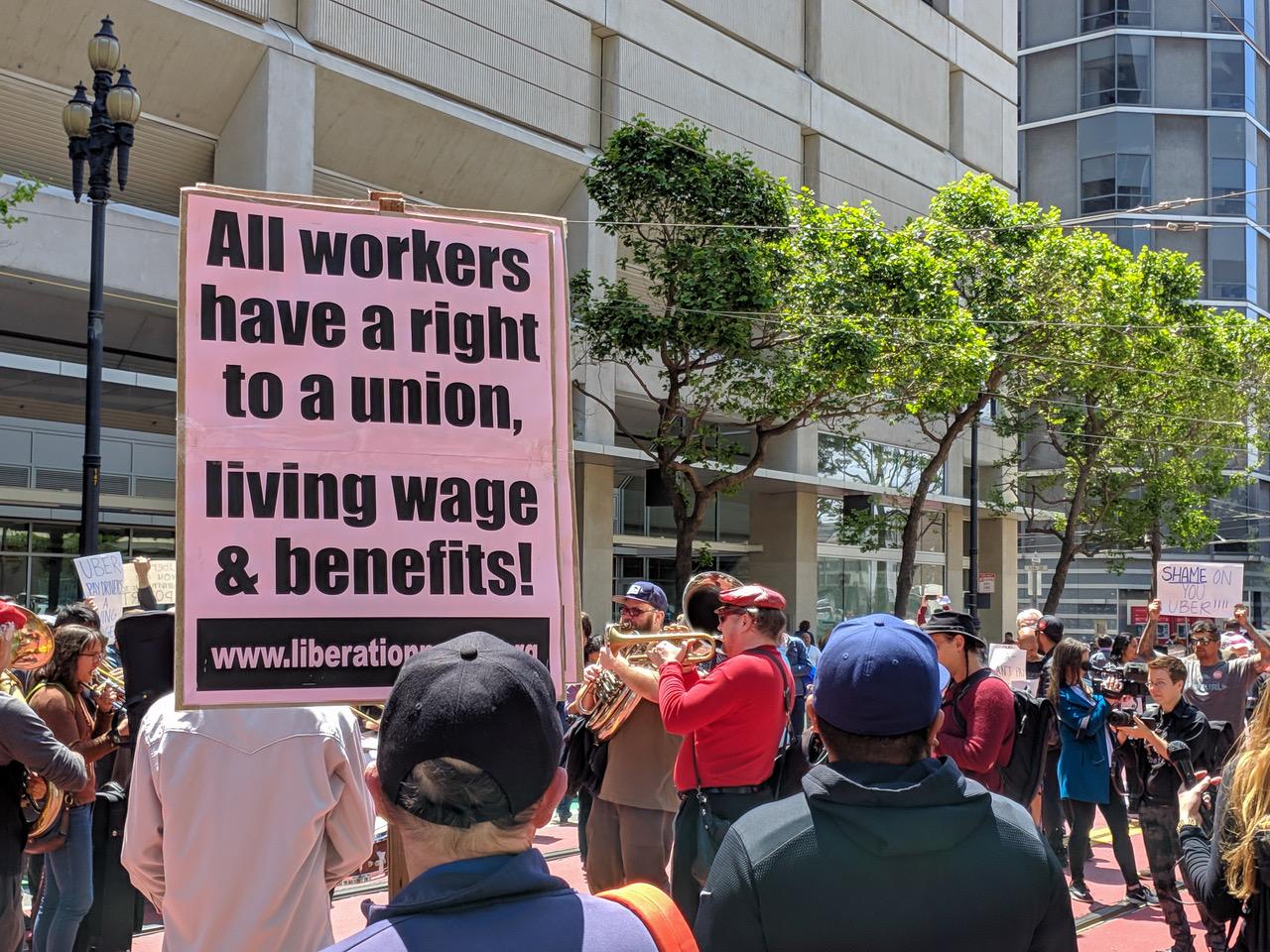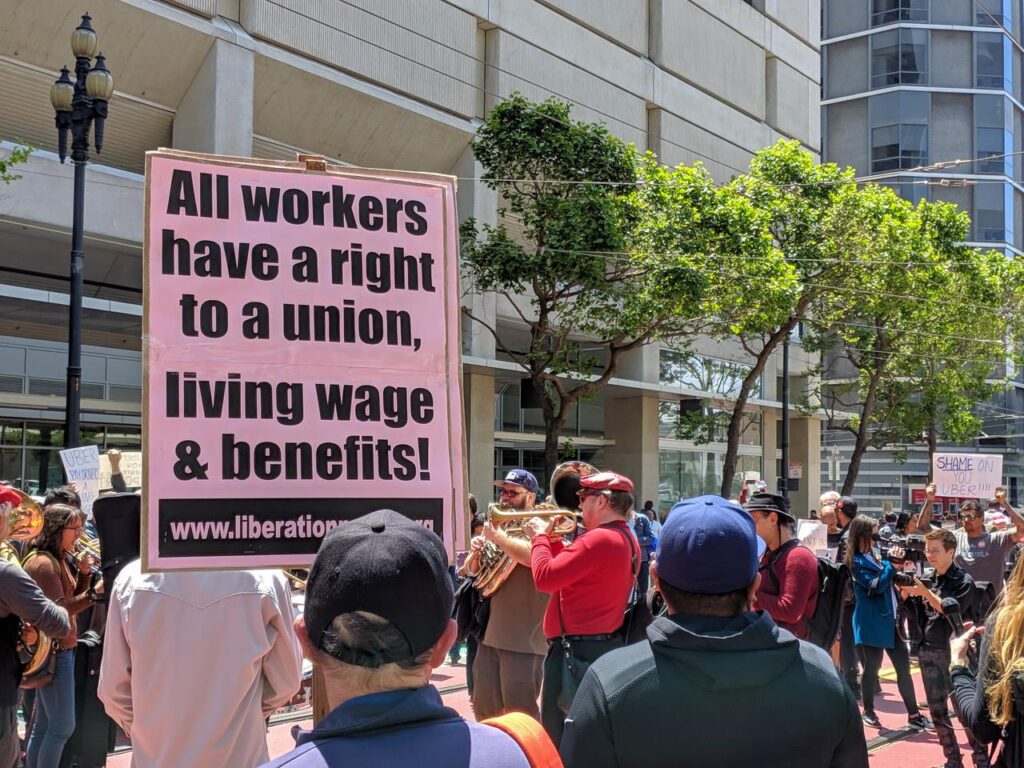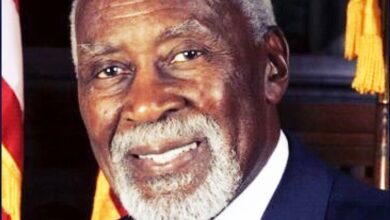
By Edward Henderson | California Black Media
In less than two months, Californians will vote on Proposition (Prop) 32. This voter guide is one in a series of articles that will help you understand what supporters and opponents of California’s 10 ballot initiatives are saying about each one.
Prop 32 would increase California’s minimum wage to $18 per hour. It is currently $16 per hour for most people and $20 per hour for fast food workers. Health care workers will eventually see their minimum wage reach $25 per hour, according to a law Gov. Gavin Newsom signed last year.

Supporters of the proposition argue that with the cost of living rising, wages need to increase as well for families to survive. California Black Media (CBM) spoke with Saru Jayaraman, director of the Food Labor Research Center at UC Berkeley, on why she supports a Yes vote for Prop 32.
“I’ve been organizing restaurant workers for 20 years. I’ve never seen a period in which I’ve seen so many restaurant workers working full-time and living in their cars. The cost of living has become an extreme crisis for people at all income levels in California,” says Jayaraman. “When you raise the floor, it lifts all boats. You raise the floor to $18 an hour, people just above $18 get a raise. It’s critical for people to be able to survive here in California.”
Jayaraman also mentioned that while Modoc County has the lowest cost of living in California, the MIT Living Wage Calculator estimates a wage of $20 an hour is needed to cover basic expenses. Closer to $25 an hour would be needed for a family with a child. In large cities like Los Angeles and San Francisco, $40 an hour is the estimated minimum living wage.
Opponents of the Proposition argue that small business owners would struggle to adjust to the wage increases resulting in cutting jobs and raising prices for their services. CBM spoke with John Kabateck, state director of the National Federation of Independent Business (NFIB), who is opposed to Prop 32.
The NFIB represents 13,000 small business owners in California and 300,000 nationwide. Kabateck says that a survey of their network reported only 8% of small business owners believe they expect their profits to improve over the next six months.
“I think every employer ought to do the right thing by showing their employees a pathway to economic success,” says Kabateck, adding that a standard minimum wage increase might hurt the bottom lines of those small business owners.
“We don’t believe that a one-size-fits-all kind of a cookie cutter mandated wage on especially on small business owners is going to be the pathway to their success,” said Kabatack. “Frankly, we are witnessing — just in the past several months with some particular industries — the opposite happening. We are seeing the very individuals that minimum wage proponents want to help being harmed. They are not getting the entry-level jobs and not finding that growth opportunities that they should.”
Jayaraman has heard this argument before and does not believe it is a factor when considering how raising the minimum wage can help small businesses.
“The minimum wage has gone up multiple times. It went up to $15. Small business continued to grow in California. It went up to $16.50. Small business continued to grow in California. And that’s because, guess what? When you pay people more, guess what they do? They go spend it. And the small businesses actually benefit from people in their communities having enough to eat out and to buy things.”
Kabateck highlighted that Californian fast-food restaurants have laid off an aggerate of 9,500 workers since April. Pizza Hut and Round Table have laid off approximately 1,300 delivery drivers, citing rising wages as the reason for the issue.
“At the end of the day, they’re sealing the fate of the people that they’re trying to help. And it’s not chicken little, this is not doom and gloom. And this is also not an angry guy saying we shouldn’t help people in the workplace. We got to help them, and we want to help retain them, but this is the wrong avenue.”
A YES vote supports increasing the state minimum wage to $18 per hour by 2026 for all employers and thereafter adjusting the rate annually by increases to the cost of living.
A NO vote opposes this ballot initiative, maintaining the existing law which was designed to increase the minimum wage to $15 per hour for all employers by January 2023 and increasing it annually according to inflation.




